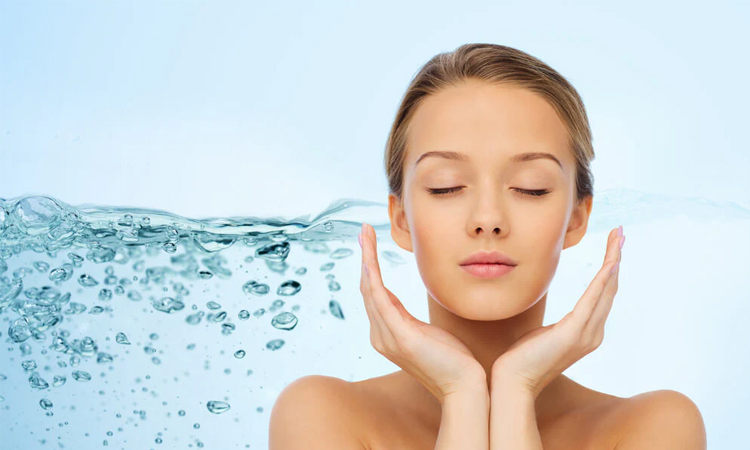
Healthy, glowing skin is a universal desire, but achieving it requires more than just a good skincare routine. The Importance of Hydration for Healthy Skin Benefits cannot be overlooked. Proper hydration keeps your skin youthful, radiant, and supports overall skin health. In this article, we’ll explore why hydration is essential for healthy skin, how it benefits your skin, and tips to keep your skin hydrated.
Why Hydration is Key for Healthy Skin
Your skin is the largest organ in your body, and it relies heavily on water to function properly. When your skin is well-hydrated, it appears plump, smooth, and glowing. On the other hand, dehydration can lead to dryness, flakiness, and even premature aging.
The Science Behind Skin Hydration
The outermost layer of your skin, known as the stratum corneum, acts as a barrier to protect against environmental damage and moisture loss. When this layer lacks sufficient water, your skin becomes dry, tight, and prone to irritation. Hydration helps maintain the skin’s natural moisture balance, ensuring it stays soft, supple, and resilient.
Benefits of Hydration for Skin
- Improves Skin Elasticity
Hydrated skin is more elastic, which reduces the appearance of fine lines and wrinkles. Proper hydration helps maintain collagen production, keeping your skin firm and youthful. - Enhances Skin Barrier Function
A well-hydrated skin barrier protects against pollutants, bacteria, and UV damage. This prevents issues like acne, redness, and sensitivity. - Promotes a Radiant Glow
Hydration improves blood circulation, giving your skin a natural, healthy glow. It also helps flush out toxins, reducing dullness and uneven skin tone. - Prevents Dryness and Flakiness
Dry skin can feel tight and uncomfortable. Hydration ensures your skin stays moisturized, preventing flakiness and irritation. - Speeds Up Skin Healing
Hydrated skin heals faster from cuts, acne, or other damage. Water helps regenerate skin cells and repair tissue more efficiently
How to Keep Your Skin Hydrated
Now that you understand the importance of hydration for healthy skin, let’s dive into practical tips to keep your skin hydrated and glowing.
- Drink Plenty of Water
The simplest and most effective way to hydrate your skin is by drinking enough water. Aim for at least 8 glasses of water a day to maintain optimal hydration levels.
- Use a Hydrating Moisturizer
Incorporate a hydrating moisturizer into your skincare routine. Look for ingredients like hyaluronic acid, glycerin, and ceramides, which lock in moisture and strengthen the skin barrier.
- Apply Serums with Hyaluronic Acid
Hyaluronic acid is a powerhouse ingredient that can hold up to 1,000 times its weight in water. Using a serum with hyaluronic acid helps boost hydration and plump your skin.
- Avoid Hot Showers
Hot water can strip your skin of its natural oils, leading to dryness. Opt for lukewarm water and limit your shower time to 10-15 minutes.
- Eat Water-Rich Foods
Incorporate water-rich foods like cucumbers, watermelon, oranges, and strawberries into your diet. These foods not only hydrate your body but also provide essential vitamins for healthy skin.
- Use a Humidifier
Dry indoor air can dehydrate your skin. Using a humidifier adds moisture to the air, helping your skin retain hydration.
- Limit Caffeine and Alcohol
Both caffeine and alcohol can dehydrate your body, leading to dry skin. Consume them in moderation and balance them with plenty of water.
- Exfoliate Regularly
Dead skin cells can prevent moisturizers from penetrating deeply. Exfoliate 1-2 times a week to remove dead skin and allow hydration products to work effectively.
Common Myths About Skin Hydration
Myth 1: Oily Skin Doesn’t Need Hydration
Even oily skin needs hydration. Skipping moisturizer can lead to overproduction of oil, causing breakouts. Use a lightweight, non-comedogenic moisturizer to keep oily skin balanced.
Myth 2: Drinking Water Alone is Enough
While drinking water is essential, topical hydration (like moisturizers and serums) is equally important. Your skin needs both internal and external hydration to stay healthy.
Myth 3: Hydration and Moisturization are the Same
Hydration refers to adding water to your skin, while moisturization involves sealing in that water with oils or creams. Both are necessary for healthy skin.
Best Ingredients for Skin Hydration
When choosing skincare products, look for these hydrating ingredients:
- Hyaluronic Acid: Attracts and retains moisture.
- Glycerin: Draws water into the skin.
- Ceramides: Strengthen the skin barrier to prevent moisture loss.
- Aloe Vera: Soothes and hydrates the skin.
- Squalane: Lightweight oil that locks in moisture.
Signs of Dehydrated Skin
How do you know if your skin is dehydrated? Look out for these signs:
- Tightness or discomfort
- Dullness or lack of radiance
- Increased sensitivity
- Fine lines and wrinkles
- Flakiness or rough texture
If you notice these symptoms, it’s time to ramp up your hydration routine.
Conclusion
Hydration is the foundation of healthy, glowing skin. By drinking enough water, using the right skincare products, and adopting healthy habits, you can keep your skin hydrated and radiant. Remember, hydration isn’t just about looking good—it’s about maintaining your skin’s health and protecting it from damage.Start incorporating these tips into your daily routine, and you’ll soon notice a visible difference in your skin’s texture, tone, and overall appearance. Your skin deserves the best, so make hydration a priority today!